First, let’s quickly re-establish the basics of hearsay with regard to the Federal Rules of Evidence. Hearsay is defined as any out-of-court statement being presented to prove the truth of the matter asserted. In order to attempt to present hearsay evidence, you need both a declarant (the person who made the statement) and a witness (the person who can testify to what the declarant said). The goal is to make that secondhand statement admissible.
In the previous episodes on the hearsay rules, Jason discussed:
- cases where out-of-court statements are completely accepted and not defined as hearsay under the Federal Rules of Evidence.
- exceptions to hearsay even if the declarant is available to testify at trial.
You can view the first and second episodes on hearsay on Rathbone Group’s YouTube channel, On Subrogation. In this episode, we discuss exceptions to hearsay that arise only if the declarant is unavailable.
For the Purposes of Admissibility, What Does ‘Unavailable’ Mean?
The Federal Rules specify conditions that must be met in order for a declarant to be acknowledged as unavailable:
- The declarant refuses to testify despite having been served a subpoena. However, keep in mind that, on its own, a refusal to testify does not meet the standards for unavailability; the court must have filed a court order.
- The declarant is deceased.
- The declarant suffers from an illness or injury that prevents them from being able to appear in court.
For out-of-court statements to even be considered under these rules, the court must first legitimize the unavailability claim.
Exceptions to Hearsay after It Has Been Determined the Declarant is Unavailable
So, what are the exceptions to the admissibility of hearsay when there is no possibility of having the declarant testify? Jason discusses the 3 exemptions laid out in the Federal Rules of Evidence:
Former Testimony
Courts will allow former testimony to be admitted, provided 1) the testimony was made under oath and is not an informal statement, 2) both parties at the time had the opportunity and motive to examine the declarant, and 3) the witness is unavailable. If the witness is available, the court prefers fresh testimony. As well, the court wants to ensure both parties had motive and the opportunity to cross examine the witness so the jury can fairly weigh the veracity of the testimony.
Statement Under Imminent Belief of Impending Death
This exception is not as straightforward, as state laws vary. However, under the Federal Rules of Evidence statements are admissible if the following conditions are met:
- The declarant’s statement was made while under the genuine belief that their death was imminent. Whether the declarant actually goes on to die is irrelevant.
- The declarant’s statement relates to the cause or circumstances of what they believed to be their impending death.
In theory, the Federal Rules of Evidence are not concerned whether the person actually died or not. However, to be declared unavailable, the declarant is usually either dead or in the hospital severely injured, so in practice, most times the person is deceased.
Statement Against Interest
This is a statement made by a witness that is against their interests. If a statement negatively affects the speaker’s reputation, finances, or has criminal implications, it may be admitted. This applies to any witness; it does not have to be the defendant.
Hearsay Rules and Subrogation Recovery
In subrogated matters such as losses from property damage or vehicular accidents, hearsay is often at play if witness statements were a key part of the initial investigation phase of the subrogation claim. Thorough, timely investigations are key to determining what out-of-court statements your side will be able to utilize in the litigation process.
Rathbone Group is adept at arguing exceptions to the Hearsay Rule, and at finding alternate routes to recovery in difficult subrogation cases. Rathbone Group manages subrogation claims for clients nationwide, actively engaging carriers and subrogation professionals in the process to protect insurer’s rights to recovery. If you’d like to know more about subrogation law and process, including the previous episodes discussing hearsay, visit our YouTube channel or listen to our On Subrogation podcasts.
